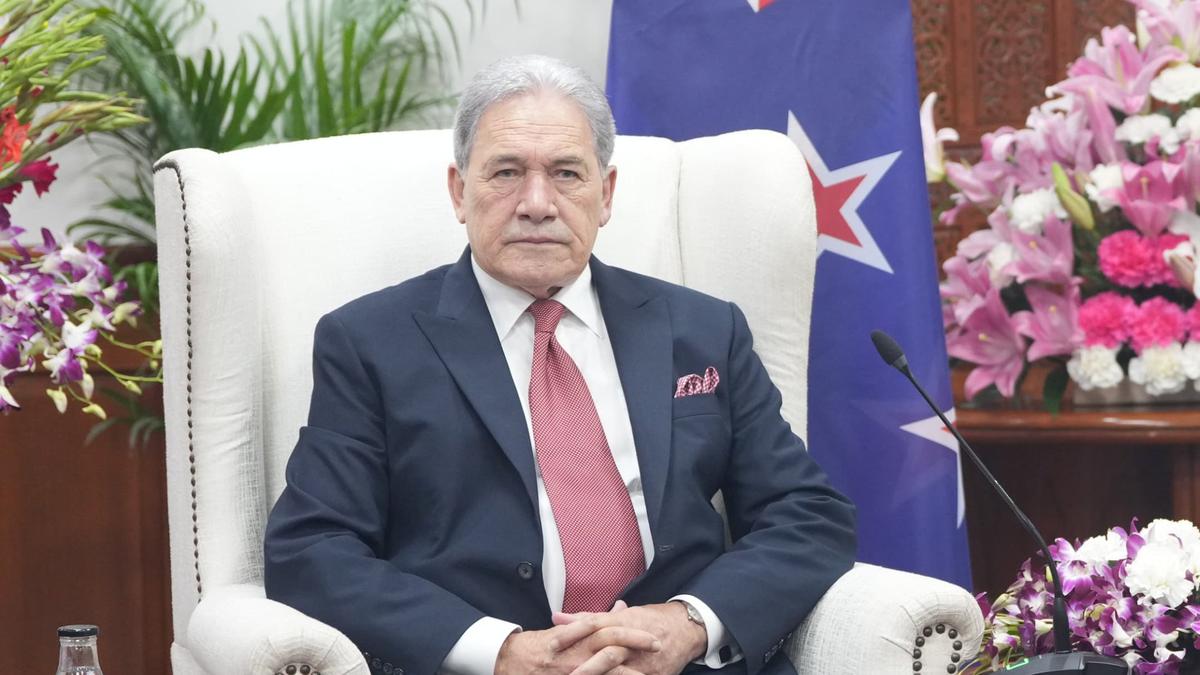
Canadian investigation into Nijjar case is not yet complete, cannot comment on evidence, says New Zealand Deputy PM
The Hindu
New Zealand's Deputy PM Winston Peters emphasizes waiting for evidence in Nijjar killing, strengthening ties with India.
Evidence in the Nijjar killing in Canada can only be known once Canadian authorities complete their investigation and take the trial to court, New Zealand’s Deputy Prime Minister and Foreign Minister Winston Peters, indicating it was too early to comment on the issue that has damaged India-Canada ties for the past few months. At the end of a four-day visit to India, the first by him as part of the recently formed coalition government in New Zealand, Mr. Peters also said that India and New Zealand shared common views on Indo-Pacific security challenges, and should work more closely together.
“Is the investigation complete?” Mr. Peters asked in response to a question from The Hindu on how New Zealand, a member of the ‘Five Eyes’ intelligence partnership with Canada, views Canadian Prime Minister Justin Trudeau’s allegations in Parliament that Indian government agents were allegedly involved in the plot to assassinate a Khalistani separatist Canadian activist, who was killed in June 2023. Since then the issue has snowballed, especially after the U.S. authorities filed the indictment of an Indian national for ordering the assassination of another Khalistani separatist, Gurpatwant Singh Pannun, at the behest of a senior Indian intelligence official. However, Canadian authorities, who made their charge publicly before the U.S., have yet to take their case to trial.
Mr. Peters’ comments are significant as they come months after the previous New Zealand government had joined other ‘Five Eyes’ grouping countries in calling on New Delhi to cooperate in the Canadian investigation on the Nijjar killing, and subsequently expressed concerns over the Modi government’s decision to ask half the Canadian High Commission’s diplomats to leave India in the wake of the allegations.
“Indians are famous for understanding the law. When you go to court, that’s when you find out all the evidence. If there is something suspicious, you wait for all the facts to come out,” Mr. Peters said, when asked about Canada’s evidence in the case while speaking to journalists at a reception held in his honour. During his visit to Delhi, Mr. Peters met with External Affairs Minister S. Jaishankar, National Security Advisor Ajit Doval, and Vice-President Jagdeep Dhankar.
Mr. Peters visited the Swaminarayan Akshardham temple in Gandhinagar, and met with representatives of the Jama Masjid mosque in New Delhi.
“India, like New Zealand, is an extremely diverse country in which varied communities come together to forge a common future. This diversity is reflected in New Zealand’s large and successful Indian diaspora. It was my pleasure to learn more about India’s faith communities and its rich spiritual heritage during this visit,” Mr. Peters said, according to a press release by the New Zealand High Commission..
“It is clear that New Zealand and India share common strategic perspectives about the security challenges our Indo-Pacific region faces as well as a commitment to do more together to meet them,” Mr. Peters was quoted as saying after talks with Dr. Jaishankar.

LGBTQ+ couples in Thailand register their marriages on the first day of law giving them equal status
Thailand legalizes same-sex marriage, granting LGBTQ+ couples equal rights and recognition, marking a historic milestone in Asia.

















